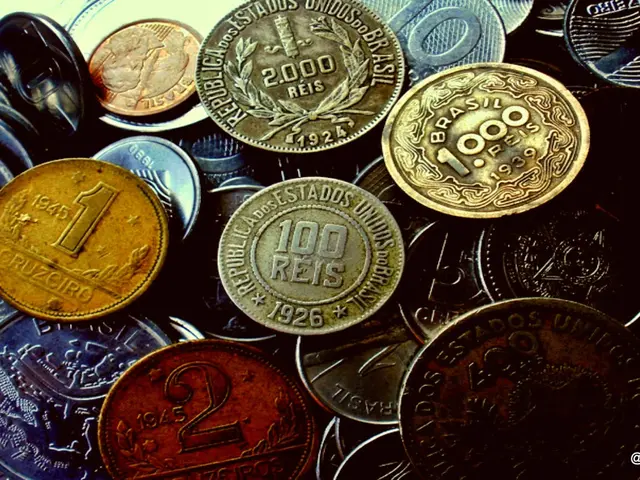Major Crypto Token Sale Launches: $PUMP ICO Sparks Fervor on Leading Cryptocurrency Platforms
Pump.fun, a prominent player in Solana's $10 billion memecoin market, launched its highly anticipated public token sale for the $PUMP token on July 12, 2025. The sale aims to raise a record-breaking $1.32 billion, surpassing Solana's initial raise. However, the sale is not open to users from the United States, United Kingdom, and European Union due to ongoing regulatory restrictions.
The $PUMP token powers fee rebates, token buybacks, and creator incentives, making it a significant component of Pump.fun's ecosystem. The token sale is only open to non-restricted jurisdictions, and KYC (Know Your Customer) is required for participation.
The remaining 330 billion tokens (33% of the total tokens) from the ICO are allocated for various purposes, including token sales, community rewards, team, existing investors, liquidity pools, livestreaming feature, ecosystem fund, foundation, and platform evolution.
Pump.fun has captured a significant share of Solana's memecoin market, but it faces competition from upstarts like LetsBONK. The public sale is accessible via six major exchanges: Bybit, Kraken, KuCoin, Bitget, Gate.io, and MEXC, with KYC required.
Regulatory restrictions exclude users from the U.S., U.K., and EU from participating. U.S. users are completely barred due to ongoing legal challenges, including a lawsuit filed in January 2025 in New York. U.K. residents are also excluded following the UK Financial Conduct Authority’s ban on Pump.fun issued in December 2024. EU users registered via Bybit's EU-regulated platform (Bybit.eu) cannot participate, complying with the European Union’s Markets in Crypto-Assets Regulation (MiCA).
Despite these exclusions, the token sale proceeded successfully with participation available to users outside these jurisdictions through platforms like Bybit’s main platform (non-EU), Gate.com, Kraken, and KuCoin.
Since its launch in January 2024, Pump.fun has demonstrated proven product-market fit, hosting the creation of 11 million tokens. No $PUMP token is currently live on-chain, and the smart contract address will only be shared during the official distribution phase.
Pump.fun has generated over $700 million in revenue and facilitated a $4.5 billion user-generated market cap. The public allocation is set at 15% of the total 1 trillion supply, or 150 billion $PUMP tokens, priced at $0.004 each.
The $PUMP ICO's significant raise puts pressure on rapid results and adoption. Investors are warned to beware of scam tokens claiming to be $PUMP. Risks for $PUMP investors include regulatory limitations, volatility, security concerns, and market sentiment.
Pump.fun's mission is the evolution of the memecoin launchpad into a full-fledged, decentralized Web3 social platform. The platform's success will be closely watched as it navigates regulatory challenges and competition in the memecoin market.
- The $PUMP token, a significant component of Pump.fun's ecosystem, powers fee rebates, token buybacks, and creator incentives.
- The public token sale for the $PUMP token on July 12, 2025, aims to raise a record-breaking $1.32 billion.
- KYC (Know Your Customer) is required for participation in the $PUMP token sale, which is only open to non-restricted jurisdictions.
- The remaining 330 billion tokens from the ICO are allocated for various purposes, including token sales, community rewards, team, existing investors, liquidity pools, livestreaming feature, ecosystem fund, foundation, and platform evolution.
- The public sale is accessible via six major exchanges: Bybit, Kraken, KuCoin, Bitget, Gate.io, and MEXC, with KYC required.
- Regulatory restrictions exclude users from the U.S., U.K., and EU from participating in the $PUMP token sale, with U.S. users being completely barred due to ongoing legal challenges.
- Pump.fun has captured a significant share of Solana's memecoin market, but it faces competition from upstarts like LetsBONK.
- The $PUMP ICO's significant raise puts pressure on rapid results and adoption, with risks for investors including regulatory limitations, volatility, security concerns, and market sentiment.




